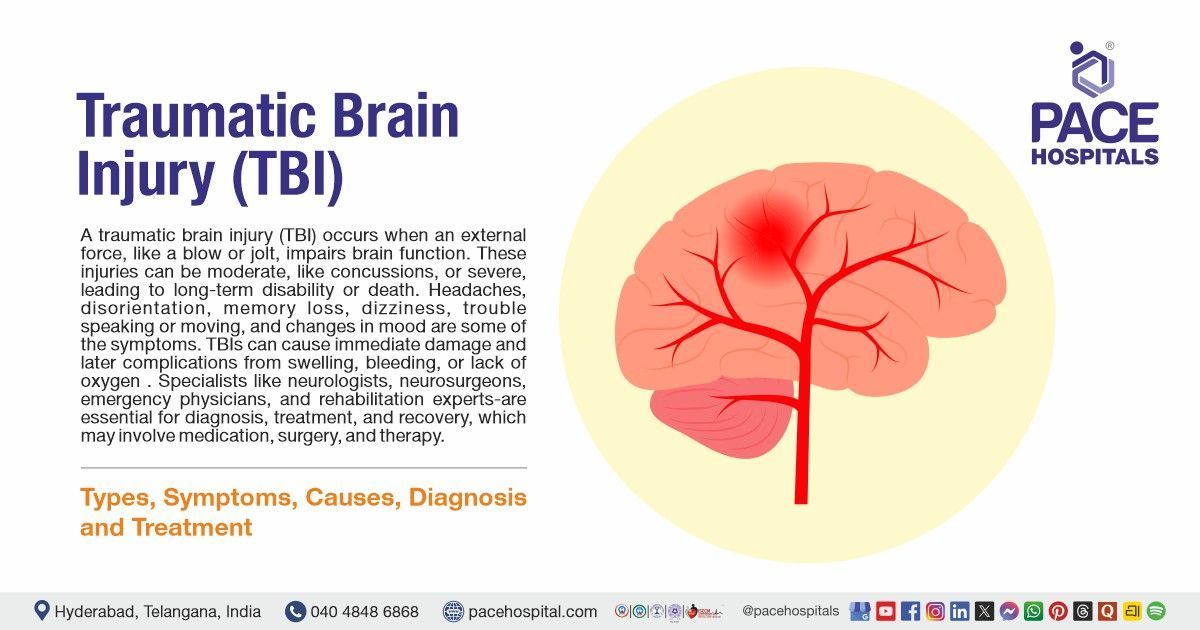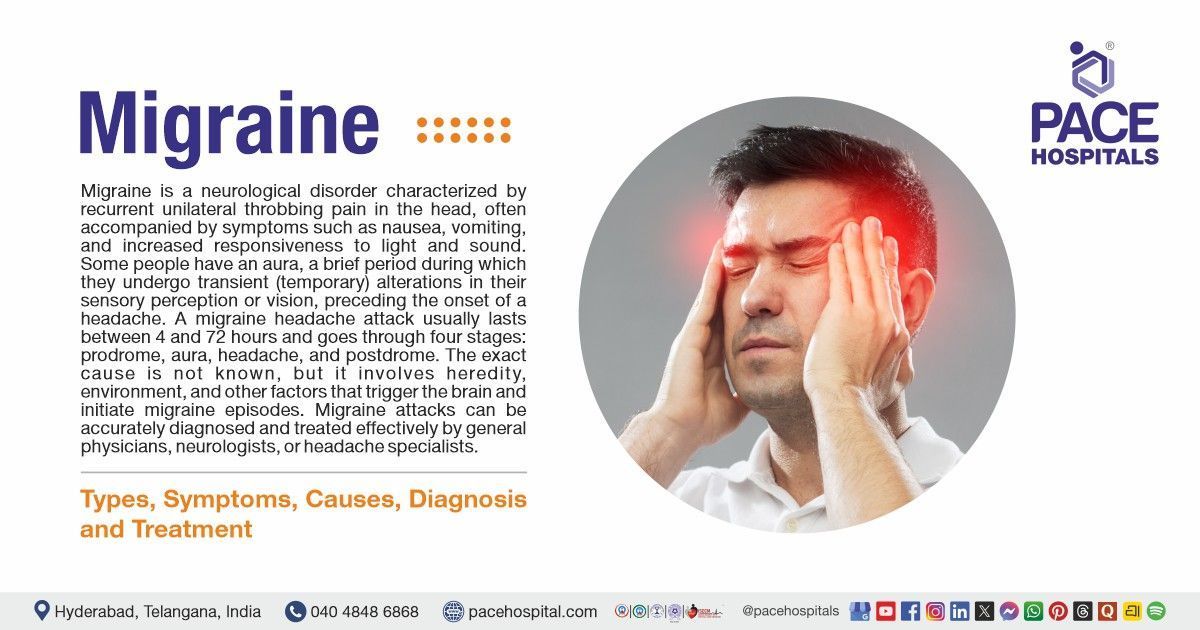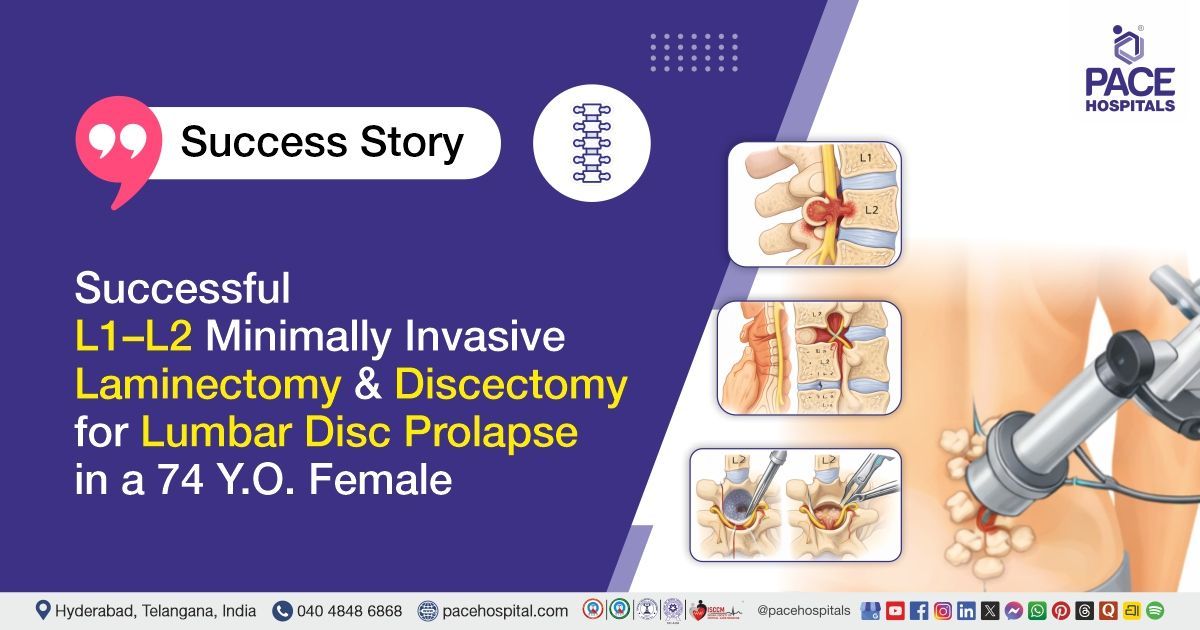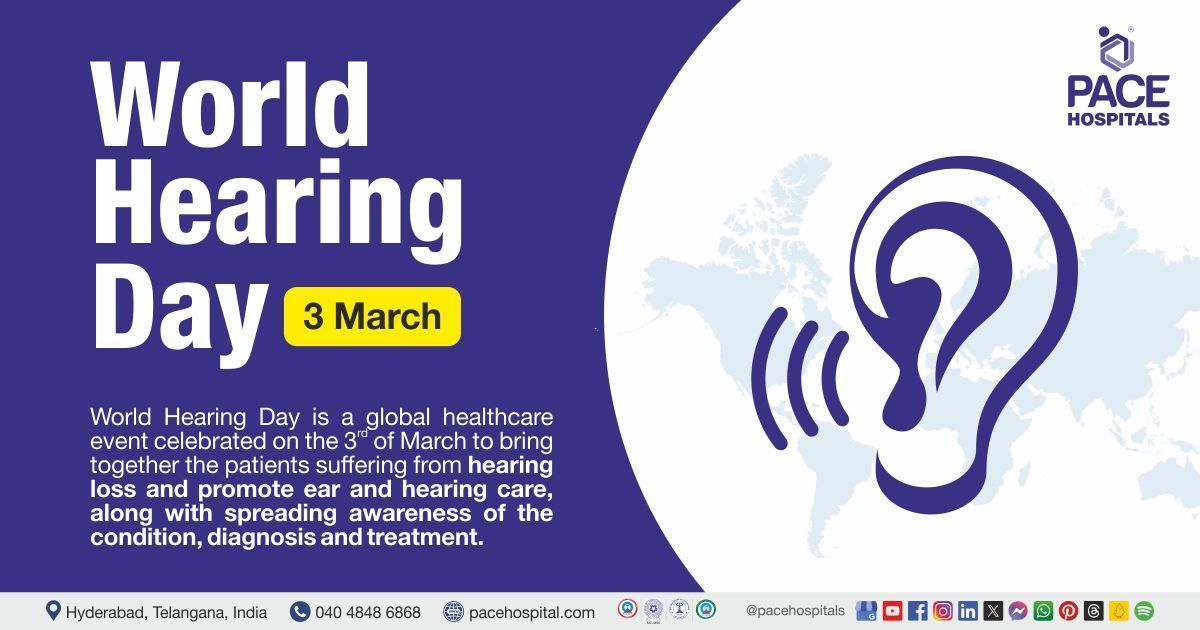Asthma During Pregnancy: Causes, Symptoms, Treatment & Safe Management
PACE Hospitals
Written by: Editorial Team
Medically reviewed by: Dr. Pradeep Kiran Panchadi - Consultant Pulmonologist, Specialist in Bronchoscopy and EBUS
Asthma is one of the most common chronic medical conditions affecting women of reproductive age. When asthma occurs during pregnancy, it requires special attention, as both maternal health and fetal well being are closely interconnected. With the right approach, most women with asthma can experience a healthy pregnancy and deliver a healthy baby.
At PACE Hospitals, our multidisciplinary team of pulmonologists, obstetricians, and maternal fetal medicine specialists focuses on providing safe, evidence based, and personalized care for women managing asthma during pregnancy. This comprehensive guide explains the causes, symptoms, diagnosis, and treatment options for asthma in pregnancy, along with practical tips for better control.
What Is Asthma?
Asthma is a chronic inflammatory disease of the airways characterized by airway narrowing, increased mucus production, and heightened sensitivity to triggers. These changes lead to recurring episodes of breathlessness, wheezing, chest tightness, and coughing.
Asthma severity can range from mild intermittent symptoms to persistent, severe disease requiring long term medication. During pregnancy, hormonal and physiological changes may alter asthma control, making regular monitoring and timely treatment essential.
Living with Asthma While Pregnant
Asthma in pregnancy refers to women who already have asthma before conception as well as those who may develop asthma like symptoms for the first time during pregnancy. Studies show that:
- About one third of pregnant women experience worsening of asthma symptoms
- One third notice improvement
- One third remain unchanged
Because asthma control can change unpredictably, continuous follow up throughout pregnancy is crucial.
Causes and Risk Factors of Asthma During Pregnancy
Asthma itself is not caused by pregnancy, but pregnancy can influence how asthma behaves. Several factors contribute to asthma symptoms during pregnancy:
Hormonal Changes: Rising levels of progesterone and estrogen affect lung function and airway responsiveness. These hormonal shifts may either improve or worsen asthma symptoms.
Increased Oxygen Demand: Pregnancy increases oxygen requirements to support fetal growth. Any airway limitation can make breathing symptoms more noticeable.
Respiratory Infections: Pregnant women are more vulnerable to viral respiratory infections, which are common asthma triggers.
Allergens and Environmental Triggers: Exposure to dust mites, pollen, pet dander, air pollution, smoke, or strong odors can aggravate asthma symptoms.
Poorly Controlled Pre Existing Asthma: Women with uncontrolled asthma before pregnancy are more likely to experience complications during pregnancy.
Common Symptoms of Asthma in Pregnancy
Asthma symptoms during pregnancy are similar to those in non pregnant individuals, but their impact may be greater. Common symptoms include:
- Shortness of breath, especially at night or early morning
- Wheezing or whistling sound while breathing
- Chest tightness or pressure
- Persistent coughing, particularly at night
- Fatigue due to disturbed sleep from breathing difficulty
It is important not to ignore these symptoms, as poor oxygen supply can affect both the mother and the developing baby.
How Asthma Can Affect Pregnancy and Know Complications Observed?
When asthma is well controlled, most women have normal pregnancies. However, poorly controlled asthma may increase the risk of several maternal and fetal complications:
- Gastroesophageal Reflux Disease (GERD): Common in pregnancy and can worsen asthma symptoms, especially night-time coughing and breathlessness.
- Frequent Asthma Attacks: Increased risk due to hormonal changes and respiratory infections.
- Reduced Oxygen Levels: Severe asthma may decrease oxygen supply to the mother and fetus.
- Pregnancy-Induced Hypertension: The blood pressure level is high in pregnancy and it is more risky in women with uncontrolled asthma.
- Preterm Birth: Asthma exacerbations may trigger early labor and premature baby.
- Low Birth Weight: Linked to inadequate oxygen delivery during pregnancy.
- Respiratory Infections: Increased susceptibility can worsen asthma control.
- Sleep Disturbance and Fatigue: Night-time symptoms like obstructive sleep apnea, asthma symptoms (coughing, wheezing) also affect overall maternal health.
Effective asthma management significantly reduces these risks.
Diagnosis of Asthma During Pregnancy
Diagnosing asthma during pregnancy is generally safe and follows standard clinical guidelines.
Medical History and Physical Examination
Doctors evaluate previous asthma history, symptom frequency, triggers, and medication use.
Lung Function Tests
Simple breathing tests such as spirometry may be used when required, as they are non invasive and safe during pregnancy.
Monitoring Oxygen Levels
Pulse oximetry helps assess oxygen saturation, especially during asthma flare ups.
At PACE Hospitals, diagnosis is performed with careful consideration of maternal comfort and fetal safety.
Treatment of Asthma in Pregnancy
The primary goal of asthma treatment in pregnancy is to maintain optimal oxygenation for the mother and fetus while preventing asthma attacks.
Is Asthma Treatment Safe During Pregnancy?
Many women worry about medication use during pregnancy. However, uncontrolled asthma poses a greater risk than most recommended asthma medications. Treatment plans are tailored to achieve good control with the lowest effective doses.
Medications Commonly Used for Asthma in Pregnancy
Reliever Medications
Short acting bronchodilators help quickly open airways during sudden symptoms. These are commonly prescribed for immediate relief and are considered safe when used as advised.
Controller Medications
Inhaled anti inflammatory medicines are the cornerstone of long term asthma control. They reduce airway inflammation and prevent exacerbations.
Oral Medications
In severe cases, short courses of oral medications may be required under strict medical supervision.
Medication adherence is vital. Skipping or stopping medicines without medical advice can worsen asthma control.
Managing Asthma Exacerbations During Pregnancy
An asthma exacerbation is a sudden worsening of symptoms. Prompt treatment is essential to prevent complications.
Warning Signs of an Asthma Attack
- Rapidly increasing breathlessness
- Difficulty speaking full sentences
- Severe wheezing or coughing
- Bluish discoloration of lips or fingers
Immediate medical care should be sought if these symptoms occur.
Lifestyle and Self Care Tips for Pregnant Women with Asthma
In addition to medications, lifestyle measures play a key role in asthma control.
Avoid Known Triggers
Identify and minimize exposure to allergens and irritants that worsen symptoms.
Maintain Regular Prenatal Visits
Frequent follow ups help adjust treatment plans as pregnancy progresses.
Get Vaccinated
Recommended vaccinations can help prevent respiratory infections that trigger asthma.
Practice Breathing Exercises
Gentle breathing techniques and relaxation exercises may improve lung efficiency and reduce anxiety.
Maintain a Healthy Lifestyle
Adequate rest, balanced nutrition, and stress management support overall respiratory health.
Labor, Delivery, and Asthma
Most women with well controlled asthma can expect a normal labor and delivery.
- Asthma attacks during labor are uncommon
- Regular asthma medications are usually continued
- Pain management options are chosen carefully to avoid respiratory side effects
The care team at PACE Hospitals ensures coordinated management between obstetric and respiratory specialists during delivery.
Post Pregnancy Asthma Care
After delivery, asthma symptoms may return to pre pregnancy patterns. Continued follow up is important, especially during the postpartum period.
Breastfeeding and Asthma Medications
Most asthma medications are compatible with breastfeeding. Mothers are encouraged to discuss ongoing treatment plans with their healthcare provider.
When to Consult a Specialist?
You should seek experienced Pulmonologist and asthma specialist care if:
- Asthma symptoms worsen or become frequent
- Relief medicines are needed more often
- There are repeated nighttime symptoms
- There is any concern about fetal growth or well being
Early intervention improves outcomes for both mother and baby.
Frequently Asked Questions (FAQs) on Asthma During Pregnancy
Is it safe to continue asthma medications during pregnancy?
Most asthma medications recommended by doctors are considered safer than leaving asthma uncontrolled. Stopping treatment without medical advice can increase the risk of asthma attacks, which are more harmful to both mother and baby. Treatment plans are always adjusted to use the lowest effective dose.
Can asthma affect the baby during pregnancy?
Yes, asthma can harm a baby if it is not well managed. Reduced oxygen levels in the mother can limit oxygen supply to the developing fetus, raising the risk of low birth weight or preterm birth. With proper treatment and regular monitoring, most women with asthma have healthy pregnancies and babies.
Are inhalers safe to use during pregnancy?
Inhalers give medication straight to the lungs and require far fewer dosages than oral medications. They are commonly recommended during pregnancy and are considered safe when used as instructed by the doctor. A correct inhaler technique is required for best management.
Is shortness of breath always due to asthma in pregnancy?
Not always. Mild breathlessness is a common symptom during pregnancy due to the body's increased oxygen requirements both for mother and developing fetus. However, if respiratory symptoms persist or worsen, such as wheezing or coughing, get medical attention.
Can untreated asthma cause preterm birth?
Severe or uncontrolled asthma increases the risk of preterm labor and delivery. Effective treatment and continuous regular monitoring considerably reduce this risk and support normal fetal growth.
Does asthma increase the risk of cesarean delivery?
Well-controlled asthma does not usually increase the need for cesarean section. Decisions regarding mode of delivery are based on obstetric indications rather than asthma alone.
Can pregnancy make asthma worse?
Pregnancy can affect asthma differently in each woman. Some pregnant women may suffer increased symptoms as a result of hormonal and physiological changes, while others may see better or no change. Regular follow-up allows for the early detection of changes and the maintenance of good asthma control.
Can asthma cause complications during labor and delivery?
Asthma attacks during labor are uncommon, particularly when the illness is effectively managed in advance. Most women can continue their asthma treatment as usual during childbirth. Throughout the delivery process, the healthcare staff examines breathing and oxygen levels regularly.
Should asthma be treated differently during pregnancy?
The basic principles of asthma treatment remain the same, but doctors take extra care in selecting medications and monitoring symptoms. Treatment is individualized to protect both maternal respiratory health and fetal development.
Can asthma lead to high blood pressure in pregnancy?
Uncontrolled asthma during pregnancy can raise the risk of having high blood pressure. While regular asthma care and routine prenatal check-ups help to reduce this risk.
Can allergies worsen asthma symptoms during pregnancy?
Yes, exposure to allergens such as dust, pollen, pet dander, or smoke can trigger asthma symptoms. Identifying and avoiding known triggers is an important part of asthma management during pregnancy.
Is it safe to perform lung function tests during pregnancy?
Simple lung function tests like spirometry are non-invasive and generally safe during pregnancy. They help doctors assess asthma control and guide treatment decisions without harming the baby.
How often should asthma be reviewed during pregnancy?
Asthma should be monitored throughout pregnancy, often at each prenatal visit. Frequent monitoring enables prompt treatment adjustments if symptoms alter.
How does PACE Hospitals manage asthma safely during pregnancy?
At PACE Hospitals, asthma care during pregnancy is planned to protect both the mother’s breathing health and the baby’s safety through specialist-led, coordinated care.
- Management involves a team-based approach with pulmonologists and obstetric specialists
- Priority is given to maintaining adequate oxygen levels in the mother
- Fetal safety is closely monitored throughout pregnancy
- Treatment plans are customized for each patient based on asthma severity and pregnancy stage
- Asthma control is reviewed regularly during prenatal visits
- Medications and care strategies are adjusted as pregnancy progresses to prevent flare-ups and complications
When should a pregnant woman with asthma consult specialists at PACE Hospitals?
A pregnant woman should consult specialists at PACE Hospitals if asthma symptoms worsen, relief medications are needed more frequently, or night-time breathlessness increases. Early specialist care is recommended if:
- Asthma symptoms become more frequent or severe
- Relief inhalers are required more often than usual
- Night-time breathlessness or coughing increases
- There are repeated asthma flare-ups or attacks
- Concerns arise regarding fetal growth or reduced movements
- Symptoms do not improve despite regular medication use
Seeking timely specialist care helps maintain better asthma control and supports a safer, healthier pregnancy outcome.
Share on
Request an appointment
Fill in the appointment form or call us instantly to book a confirmed appointment with our super specialist at 04048486868











